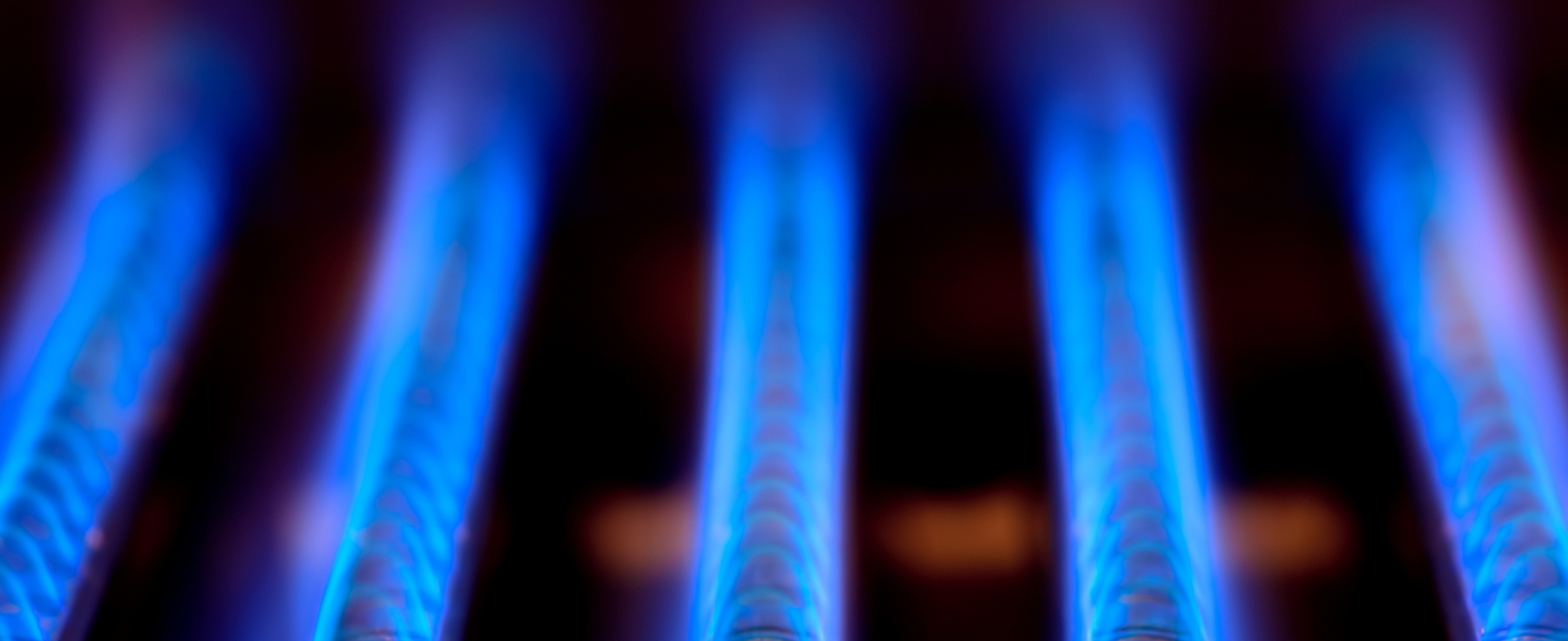
Landlord's Guide to Gas Safety: Your Legal Obligations and Responsibilities
As a landlord, ensuring the safety of your tenants is both a moral duty and a legal requirement. Gas safety regulations place specific obligations on property owners, and understanding these responsibilities is crucial for protecting your tenants and avoiding potential legal issues. The consequences of neglecting gas safety can be severe, including hefty fines, prosecution, and tragically, loss of life.
Who Qualifies as a Landlord?
The definition of "landlord" under gas safety regulations is broader than many people realise. You're considered a landlord if you rent out any property, whether it's a residential dwelling, a room to let, or even holiday accommodation subject to a lease or licence agreement. This includes short-term landlords, long-term landlords, and lettings and management agents.
Whether you're renting out a single room in your home or managing multiple properties, the same gas safety obligations apply. These responsibilities cannot be delegated—as the landlord, you remain accountable for ensuring compliance with gas safety regulations.
Understanding Your Three Main Legal Responsibilities
The Gas Safety (Installation and Use) Regulations 1998 outline three fundamental duties that every landlord must fulfil to ensure tenant safety and legal compliance.
1. Annual Gas Safety Checks
Every gas appliance, fitting, chimney, and flue in your rental property must undergo an annual gas safety check performed by a Gas Safe registered engineer. This isn't merely a recommendation—it's a legal requirement that protects your tenants from potentially fatal carbon monoxide poisoning and gas leaks.
The timing of these checks offers some flexibility. You can arrange a gas safety check any time between 10-12 months after the last completed check without affecting the original expiry date. However, if you conduct the check earlier than 10 months or later than 12 months, you'll receive a new deadline date 12 months from the most recent inspection.
Following the check, you'll receive a Landlord Gas Safety Record (LGSR) detailing all the work completed. This document serves as proof of compliance and must be kept safe for your records.
2. Gas Safety Record Distribution
Once you receive your LGSR, you have specific obligations regarding its distribution to tenants. Current tenants must receive a copy within 28 days of the gas safety check being completed. For new tenants, you must provide the record before they move in or at the very start of their tenancy.
For short-term rental periods of less than 28 days, such as holiday lets, you must clearly display a copy of the gas safety record within the property where tenants can easily see it.
Record-keeping is equally important—you must retain copies of gas safety records until two further checks have been completed, ensuring you maintain a comprehensive safety history for your property.
3. Ongoing Maintenance Requirements
Beyond annual checks, landlords must ensure all gas pipework, appliances, chimneys, and flues remain in safe condition throughout the year. This involves following manufacturer guidelines for servicing intervals, though annual servicing is typically recommended unless your Gas Safe registered engineer advises otherwise.
While formal maintenance record-keeping isn't legally required, maintaining detailed records demonstrates your commitment to safety and provides valuable evidence of compliance should any issues arise.
Carbon Monoxide Detector Requirements
Since 1st October 2022, carbon monoxide alarms have been mandatory in every habitable room containing gas appliances (excluding cooking appliances in England, Scotland, and Northern Ireland). This requirement significantly enhances tenant safety by providing early warning of this silent, potentially deadly gas.
When purchasing carbon monoxide alarms, ensure they comply with British Standard EN 50291 and carry appropriate approval marks such as the Kitemark. You must test these alarms on the day any new tenancy begins, ensuring they're fully functional when tenants move in.
Regular testing and battery replacement are ongoing responsibilities. Follow manufacturer recommendations for maintenance schedules and keep records of all testing and maintenance activities.
Smoke Alarm Obligations
Alongside carbon monoxide detectors, landlords must ensure smoke alarms are fitted and maintained throughout their properties. These life-saving devices are mandatory and must be tested at the beginning of each new tenancy.
Like carbon monoxide alarms, smoke detectors should meet relevant British Standards and be positioned according to manufacturer guidelines for optimal effectiveness.
Gas Pipework and Installation Checks
While annual gas safety checks focus on appliances and flues, installation pipework requires separate attention. Both Gas Safe Register and the HSE recommend asking your Gas Safe registered engineer to test the entire gas system for tightness and visually examine all accessible pipework during safety visits.
Although not formally required as part of the annual check, these additional inspections help identify potential problems before they become dangerous, providing enhanced protection for your tenants and your property.
Dealing with Difficult Tenants
Occasionally, tenants may refuse access for mandatory safety checks, creating a challenging situation for conscientious landlords. If this occurs, you must demonstrate that you've taken all "reasonable steps" to comply with the law.
Document all attempts to gain access, including phone calls, emails, and written notices. Explain to tenants that safety checks are legal requirements designed for their protection, not inconvenience. Keep detailed records of all communication and attempted visits—this documentation may prove crucial if legal issues arise.
The gas safety regulations don't provide powers to force disconnection of gas supplies in these circumstances, so persistent access problems may require legal advice to resolve appropriately.
Choosing the Right Gas Safe Registered Engineer
Selecting a qualified, experienced Gas Safe registered engineer is crucial for ensuring thorough, compliant safety checks. Look for engineers with extensive landlord experience who understand the specific requirements and can provide comprehensive services.
At Top Notch Heating Ltd, we specialise in landlord gas safety certificates and have over 20 years of experience serving property owners throughout Maidenhead, Reading, Henley, Marlow, and Slough. Our Gas Safe registered engineers understand landlord requirements and provide detailed, compliant safety records.
Understanding the Costs
Gas safety check costs vary depending on property size, number of appliances, and local market rates. We recommend obtaining quotes from at least three Gas Safe registered businesses to ensure competitive pricing while maintaining quality standards.
Remember that the cost of annual safety checks represents excellent value compared to potential fines, legal costs, or the devastating consequences of gas-related accidents. View these checks as essential insurance for your tenants' wellbeing and your legal protection.
Emergency Procedures and Tenant Education
Ensure your tenants understand what to do in gas emergencies. They should know how to turn off the gas supply, recognise the signs of gas leaks, and understand when to call emergency services immediately.
Provide clear instructions about gas emergency procedures and ensure this information is easily accessible within the property. Consider including emergency contact numbers and basic safety instructions in your welcome pack for new tenants.
Record Keeping and Documentation
Maintain comprehensive records of all gas safety activities, including annual checks, maintenance work, and any remedial actions taken. While not all record-keeping is legally mandated, thorough documentation demonstrates your commitment to tenant safety and provides valuable protection should any disputes arise.
Store records securely and ensure they're easily accessible when needed. Digital copies provide convenient backup, but ensure you can access them quickly if required by authorities or insurance companies.
Consequences of Non-Compliance
The penalties for failing to comply with gas safety regulations can be severe. Landlords may face unlimited fines, imprisonment for up to six months, or both. More importantly, non-compliance puts tenants' lives at risk and can result in tragic consequences that no financial penalty can address.
Beyond legal penalties, non-compliance can invalidate insurance policies, leaving you financially exposed to significant claims. The reputational damage can also affect your ability to attract quality tenants and maintain successful rental properties.
Conclusion
Gas safety compliance isn't just about meeting legal requirements—it's about protecting the lives and wellbeing of the people who trust you to provide safe accommodation. Understanding and fulfilling your obligations as a landlord ensures tenant safety while protecting your business interests.
Don't leave gas safety compliance to chance. Work with experienced Gas Safe registered engineers who understand landlord requirements and can provide comprehensive services that keep your tenants safe and your properties compliant.
Top Notch Heating Ltd provides comprehensive landlord gas safety services throughout Maidenhead and surrounding areas. Our Gas Safe registered engineers specialise in landlord certificates, carbon monoxide alarms, and smoke alarm installation. With over 20 years of experience and over 100 five-star reviews, we understand landlord requirements and provide reliable, compliant services. Contact us today to arrange your gas safety checks.
.svg)
.svg)




